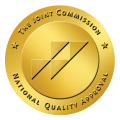Alcohol abuse is one of America’s most common forms of substance abuse. More than 18 million adults suffer from alcohol use disorder (AUD). There are many signs that can indicate a person has an AUD, but it’s important to be aware of the four most common ones. Knowing these signs can help you recognize if someone you know is struggling with alcohol abuse and needs help.
If you or a loved one is looking for an “alcohol abuse treatment program near me,” contact Aftermath Addiction Treatment Center today at 855-795-1226. Our compassionate dual diagnosis treatment center in Wakefield, MA, is ready to help.
Signs of Alcohol Abuse
While there are many signs of alcohol abuse, these are the most common:
Drinking Too Much and Too Often
The first sign of alcohol abuse is drinking too much and too often. This could mean having more than three drinks per day or seven drinks per week for women, four drinks per day, or 14 drinks per week for men. Binge drinking—defined as having five or more drinks within a two-hour period—is also an indication that someone may have an AUD. If you notice this behavior in yourself or someone else, it could be a sign of alcohol abuse and should not be ignored.
Neglecting Responsibilities
Another common sign of alcohol abuse is neglecting responsibilities due to drinking. If your loved one suddenly stops going to work or school, makes excuses not to socialize with friends, or fails to take care of personal hygiene and other everyday tasks, it may be a sign that they have an AUD. Additionally, if they start to show up late for appointments or use alcohol to explain why things aren’t getting done, these could also be signs that they need help.
Physical Symptoms
Physical symptoms are another telltale sign of alcohol abuse:
- Bloodshot eyes
- Slurred speech
- Difficulty walking straight
- Nausea after drinking even small amounts
- Blackouts after heavy drinking sessions
- Tremors when they haven’t had a drink in awhile
These could all point toward an AUD. Additionally, if they show signs of withdrawal, such as anxiety when they don’t have access to alcohol or intense cravings when exposed to it, these are also indications that professional help may be necessary.
Behavioral Changes
The fourth sign of alcohol abuse is behavioral changes such as:
- Loss of interest in activities that used to bring joy before the addiction started setting in
- Becoming aggressive when asked about their drinking habits
- Exhibiting recklessness, such as driving while intoxicated
- Experiencing memory problems
- Developing risky behaviors such as sharing needles
- Losing motivation
- Withdrawing from family and friends
- Having financial trouble due to spending too much money on alcohol
- Feeling guilt/shame about their drinking habits
- Denying there’s a problem despite evidence pointing otherwise
- Avoiding places where people don’t drink
- Consistently lying about their consumption patterns etc.
All these behaviors can indicate an addiction problem that requires professional treatment from trained professionals in order for recovery to take place successfully over time.
Alcohol Abuse Treatment at Aftermath Addiction Treatment Center
Alcohol abuse can have serious consequences on both physical and mental health if left untreated. Recognizing the warning signs early on is key in helping those suffering from AUD get the help they need before things spiral out of control. If you or someone you know shows any combination of the above-mentioned signs, please seek professional help immediately.
Contact Aftermath Addiction Treatment Center at 855-795-1226 today to learn about our dual diagnosis treatment. We provide personalized care in a safe and comfortable environment to help those struggling with AUD get back on the path to recovery. We understand that mental health issues are often at the root of alcohol abuse, and we are here to provide comprehensive care that will give you the best chance at lifelong recovery.








